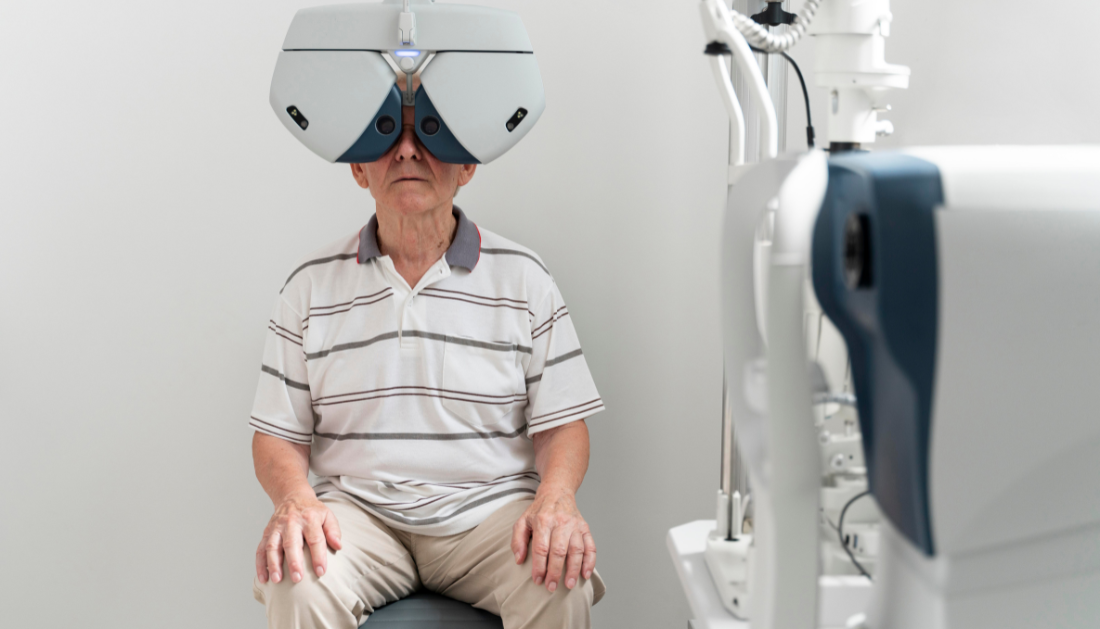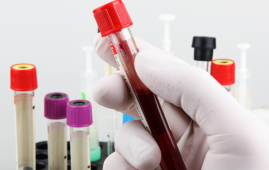

A new robot radiotherapy system has been successfully utilized by researchers from King’s College London and doctors from King’s College Hospital NHS Foundation Trust to improve therapy for a debilitating eye illness.
The specially designed robot radiotherapywas utilized to treat wet neovascular age-related macular degeneration (AMD). Patients received routine injections into their eyes after receiving a single, less intrusive radiation dose.
It was discovered in the historic trial, which was published in The Lancet, that patients required fewer injections to successfully manage the illness, possibly saving up to 1.8 million injections annually worldwide.
The severe eye illness known as wet AMD is caused by aberrant new blood vessels growing into the macula, the layer of cells in the rear of the eyeball that senses light. After that, the arteries begin to bleed blood and fluid, which usually results in an abrupt, severe, and permanent loss of vision.
AMD is estimated to impact 196 million individuals worldwide and over 700,000 people in the United Kingdom, according to the Royal College of Ophthalmologists. The aging population of the nation is predicted to cause the number of AMD patients to rise by 60% by 2035.
Currently, injections into the eye on a daily basis are used to treat wet AMD. A patient’s vision is significantly improved at the beginning of treatment. However, because the injections don’t treat the illness, patients will eventually need long-term, recurrent treatments when fluid starts to accumulate again in the macula. The majority of people need an injection every one to three months, and eye injections—which may cost anywhere from £500 to £800—have emerged as one of the most popular NHS treatments.
Three intensely focused radiation beams are directed into the affected eye as part of the novel treatment, which offers significantly better targeting than current techniques. Researchers discovered that patients receiving robotic radiation needed fewer injections to manage their illness than those receiving conventional care.
According to the study, because the robotic radiotherapy device requires fewer injections, it saves the NHS £565 for every patient treated over the first two years.
Professor Timothy Jackson, a consultant ophthalmic surgeon at King’s College Hospital and the study’s lead author, stated, “Previous research has attempted to find a better way to target radiation therapy to the macula, such as by repurposing devices used to treat brain tumors. However, nothing has been able to target macular degeneration that might be smaller than 1 mm in diameter up to this point.
“With this purpose-built robotic system, we can be incredibly precise, using overlapping beams of radiation to treat a very small lesion in the back of the eye. Patients generally accept that they need to have eye injections to help preserve their vision, but frequent hospital attendance and repeated eye injections isn’t something they enjoy. By better stabilizing the disease and reducing its activity, the new treatment could reduce the number of injections people need by about a quarter. Hopefully, this discovery will reduce the burden of treatment that patients have to endure.”
Dr. Helen Dakin, University Research Lecturer at the University of Oxford, said, “We found that the savings from giving fewer injections are larger than the cost of robot-controlled radiotherapy. This new treatment can therefore save the NHS money that can be used to treat other patients, while controlling patients’ AMD just as well as standard care.”
more recommended stories
 Parkinson’s Disease Care Advances with Weekly Injectable
Parkinson’s Disease Care Advances with Weekly InjectableA new weekly injectable formulation of.
 New Blood Cancer Model Unveils Drug Resistance
New Blood Cancer Model Unveils Drug ResistanceNew Lab Model Reveals Gene Mutation.
 Osteoarthritis Genetics Study Uncovers New Treatment Hope
Osteoarthritis Genetics Study Uncovers New Treatment HopeOsteoarthritis- the world’s leading cause of.
 Antibody Breakthrough in Whooping Cough Vaccine
Antibody Breakthrough in Whooping Cough VaccineWhooping cough vaccine development is entering.
 Scientists Unveil Next-Gen Eye-Tracking with Unmatched Precision
Scientists Unveil Next-Gen Eye-Tracking with Unmatched PrecisionEye-tracking technology has long been a.
 Men5CV: Hope for Ending Africa’s Meningitis Epidemics
Men5CV: Hope for Ending Africa’s Meningitis EpidemicsA landmark global health study led.
 Stem Cell Therapy Shows 92% Success in Corneal Repair
Stem Cell Therapy Shows 92% Success in Corneal RepairA groundbreaking stem cell therapy known.
 Gene Therapy for Maple Syrup Urine Disease
Gene Therapy for Maple Syrup Urine DiseaseResearchers at UMass Chan Medical School.
 How Fast Are Your Organs Aging? Simple Blood Test May Tell
How Fast Are Your Organs Aging? Simple Blood Test May TellNew research from University College London.
 HEALEY Platform Accelerates ALS Therapy Research
HEALEY Platform Accelerates ALS Therapy ResearchA New Era of ALS Clinical.

Leave a Comment